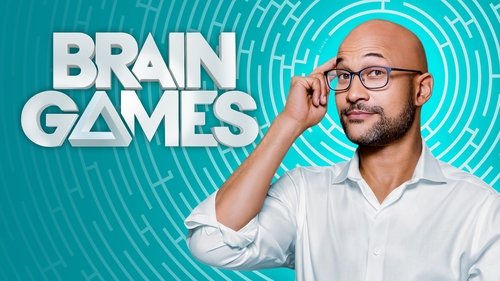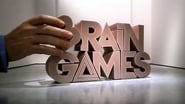Exoticalot
People are voting emotionally.
Seraherrera
The movie is wonderful and true, an act of love in all its contradictions and complexity
Lollivan
It's the kind of movie you'll want to see a second time with someone who hasn't seen it yet, to remember what it was like to watch it for the first time.
Neive Bellamy
Excellent and certainly provocative... If nothing else, the film is a real conversation starter.
plonskyks
Brain Games is a documentary series about the human brain and how it works. The episode, "Battle of the Sexes" was a compilation of experiments and games testing the biological differences in the female and male brains. Because my project is based off of the physical and behavioral differences among men and women and how those differences affect the law, this episode of Brain Games directly affects my civil rights question. My own experiments I have conducted are inspired directly from this show, and they will help prove or disprove stereotypical differences in the two genders. "Battle of the Sexes" covers three major differences in men and women: the eye for detail, competitive drive, and spatial reasoning. The first experiment was a picture of seven squares of the color red. Both men and women were asked how many different shades of red they could see; The majority of guys only saw three to five shades of red, whereas the majority of women could see six or all seven almost immediately. Women's brains are hardwired to see more shades on the red orange spectrum, and they are typically more likely to pay attention to detail. One theory behind this biological difference is that millions of years ago, it was an advantage for women to see the differences in shades of red to find nutritious berries while scavenging. The female brain is proved throughout this experiment and many others to be better at noticing detail in color and other things than the male brain. This means that the stereotype of women noticing things better and having a sharper eye for detail is true. The eye-for-detail stereotype was proved again in the second experiment through a game tested on both men and women. A list of ten random challenging tasks titled "Read All Directions Carefully" is placed in front of a man and a woman in separate rooms as they compete to finish all tasks the fastest. The tasks include applying lipstick, doing jumping jacks, spinning in circles, etc. At the end of the list, it says "ignore all of these challenges and sign your name on the bottom of this page." On this show, 75% of the women tested simply signed their names on the bottom, winning the game, whereas only 20% of men signed and won.Although women may be better at noticing detail, men are proved to have the upper hand in spatial reasoning in this episode of Brain Games. In the first spatial reasoning experiment, One shape, a parallelogram, is shown at the top of a poster and four groups of shapes are shown at the bottom. The task is to figure out which group of shapes makes up the parallelogram shown at the top. Most guys got the right answer more than girls did, proving they have a better sense of spatial reasoning. This was proved once again in the second spatial reasoning test when two different kinds of directions were read aloud to men and women. Most men have an easier time understanding directions when miles and cardinal points are included, whereas women have an easier time following directions using physical landmarks. Spatial reasoning means men are naturally better at finding cardinal points like north and south, making this experiment another valid test proving men have the advantage in spatial reasoning. One explanation to this is millions of years ago it was a man's job to head out the wilderness, track and kill animals, and then find their way home. This gives them the advantage among building things and picturing where things are placed, which may contribute to the male dominance in things like the STEM field and STEM related careers.This episode of Brain Games proves through a few simple experiments that men and women really are biologically different in several ways, and it affects their behavior to gain the advantage in different areas like spatial reasoning or following directions. Not only is this is helpful to further our understanding of the two genders, but it also allows to think about how genders should be treated in the eyes of the law. If men and women simply do not have the same strengths and weaknesses, should they be treated completely equally in all aspects of the law?
Ismaël Chabani
I'd heard about the show here and there. I've seen the Nat Geo announcement on TV, suffice it to say, it piqued my interest. The show came with a promise: "You watch it, you'll learn stuff!"What unquantifiable disappointment that was...Watching it, I couldn't help but feel cheated, belittled and robbed of my time. I'm not basing what I'm about to type on 1 or two episodes I've watched, no. I bore with it... for a whole season, including the start of this year's latest batch.You see, the problem with this show is that it is founded on the basis that you, the viewer, MUST be stupid. And quite frankly, I do feel stupider upon watching it. I haven't watched the very first episodes, from what reviewers say, they were the best. But it doesn't take a rocket-scientist to tell you that they are trying way too hard to keep this show afloat. It all feels stretched WAY out of proportion. I have yet to watch a single episode where I learn something and don't facepalm (literally) every second, where the host and his band of "experts" aren't so pretentious.Now that's another great problem: The pretentious cast. Once you realize how none of what you see or hear actually "fools your Brain" (as they claim it will), or whatever the hell they thought it would do, it starts feeling like a grand scam. It's a show, on TV. It's not live, sure, and a wide variety of profiles are watching it... But then, WHY have this pseudo-interactivity, with their puzzles and games? I get it that it's supposed to engage the viewers, you aren't just passively watching the show... But when all your stupid easy 'games' (which are supposed to be corroborated by what mumbo-jumbo of a scientific explanation you throw next) all end with the assumption that WE got it wrong... Woah the anger. Really, this show makes me angry. And I've no anger issues whatsoever in general.It could be that I'm not part of the targeted audience (although I have no pretension of knowing everything that there is to know about everything), but then WHAT is that target? Watch at your own risk if you have a shred of self conscience. Hell, if you have a shred of anything... I'm not going to judge you like that show does.
ivko
This show is an examination of how our brains work, with special emphasis on the cracks in what is its otherwise deeply impressive capabilities. The show is educational, but mostly it's fun to watch because you get to see how your own brain makes assumptions and mistakes under certain circumstances. These range from the fun, optical illusion types of errors to the downright spooky mistakes of reading errors or overconfidence in how common everyday technology works.To illustrate with an example from the show, without cheating and going online or looking at a physical example, draw a picture of a bicycle with wheels and a frame, then look at a real picture and compare your picture to reality. Even though the mechanism is simple and easily understood, there is a very decent chance that your drawing contains significant errors. This is because our brains don't like to feel that we don't understand the world we live in, so we "hand wave" away the concept of a bicycle, telling ourselves that we understand the concept even if we really don't. And as the show points out with numerous examples, this isn't some isolated or rare example, but is in fact much closer to the norm than we would be comfortable admitting.I don't know that I would agree with another reviewer that these types of examples should be used to screen job candidates because I think that the point of these examples is that whether or not you pass one particular test, you are almost certain to fail at least some of the tests. The problem isn't smart vs stupid or focused vs lazy, the problem is that our brains are imperfect computing devices. In fact, one could argue that by deciding that these errors don't apply to you by virtue of your intelligence or diligence you are making exactly the type of critical thinking error you are claiming to have overcome.Observing these cracks in our understanding argues for an extra layer of caution and occasionally pausing to examine our assumptions when making key decisions. Did I really understand the question a coworker asked me or did I make a quick assumption and leap to an incorrect conclusion? Is it really safe for me to answer this one quick phone call while driving or will the conversation require too much attention to do it safely?Not all of the topics on the show are equally applicable to our day to day lives, and the the show does occasionally rehash slight variations of themes it has previously covered, but all in all I think it's really fascinating to watch, and an excellent show in general to watch with your kids or significant other because there are plenty of opportunities for interactive group brain teasers or exercises to do with others.By the way, did you catch the extra word in the previous paragraph? Yes? Good on you! Now catch a few episodes and see how well you do on the other tests...
Waldwick63
This show should be used by every HR department. My biggest problems with new employees can be revealed through some of these shows. Ex not noticing double words in common sayings or over compensating knowledge. If I could screen new hires on just these two skills it would save thousands of dollars. What I have always blamed on reading comprehension, may be the way people's brains work In my area of responsibility millions of dollars can be decided on detailed review of contract language, which can sometimes be compared to an illusionists slight of hand. It's very difficult these days to find candidates that can focus quickly on the text at hand. It's like no one has the focus necessary to perform this task. I have asked new employees to review hard copy text to find a specific string of text and after hours they cannot. This is the product of online education which renders old logical thought useless.


